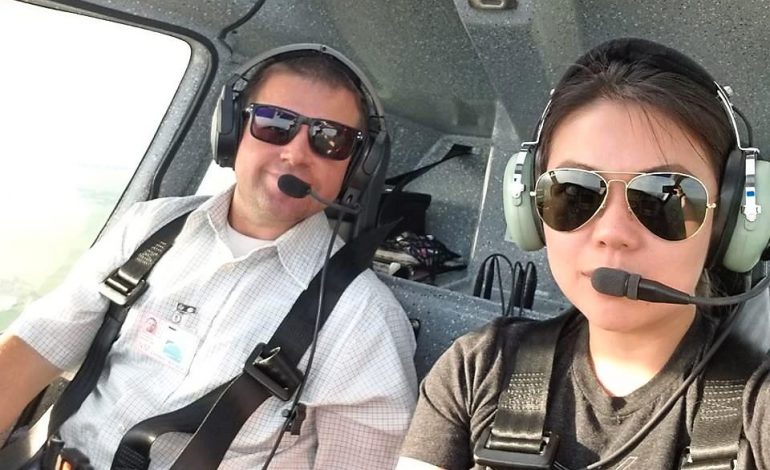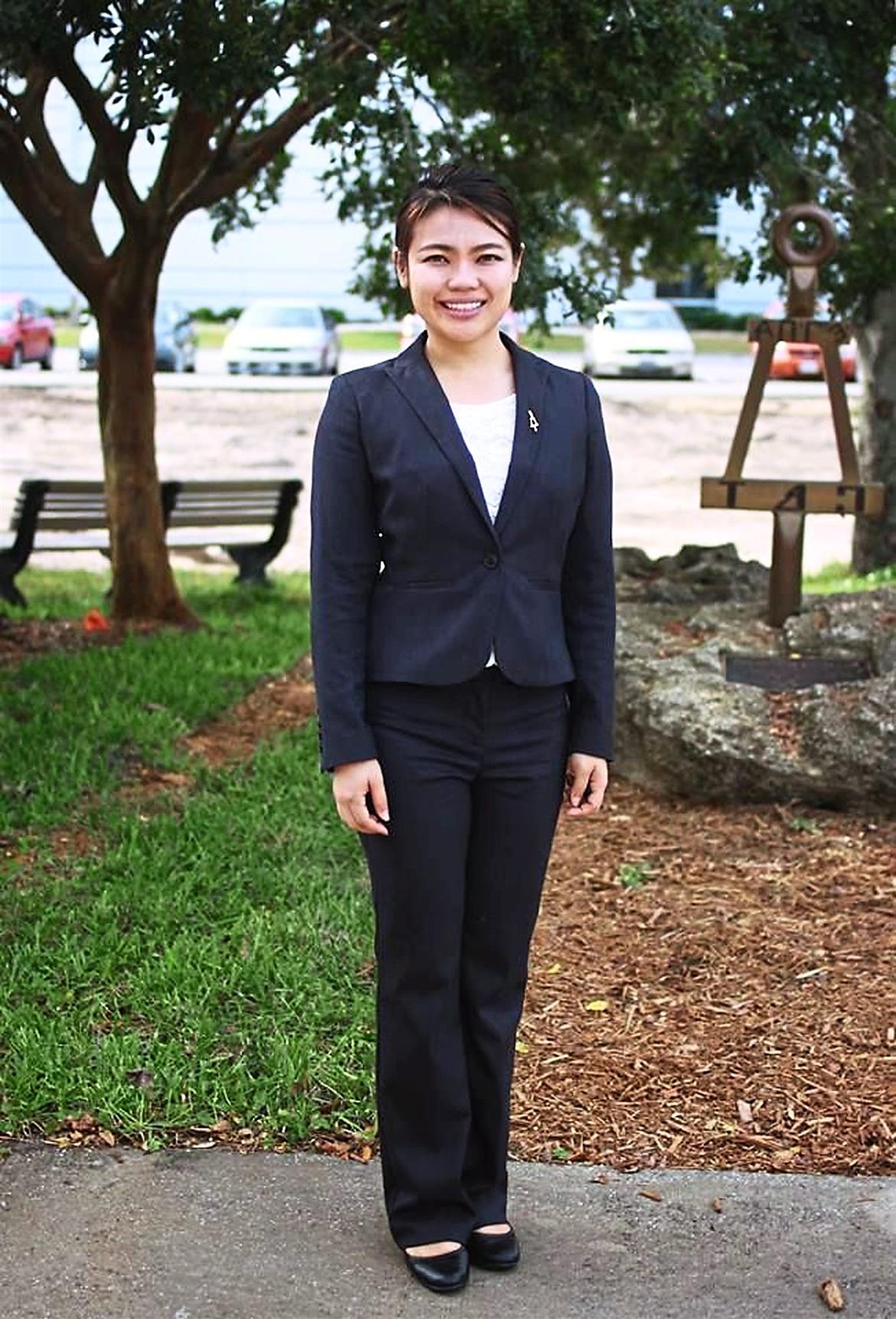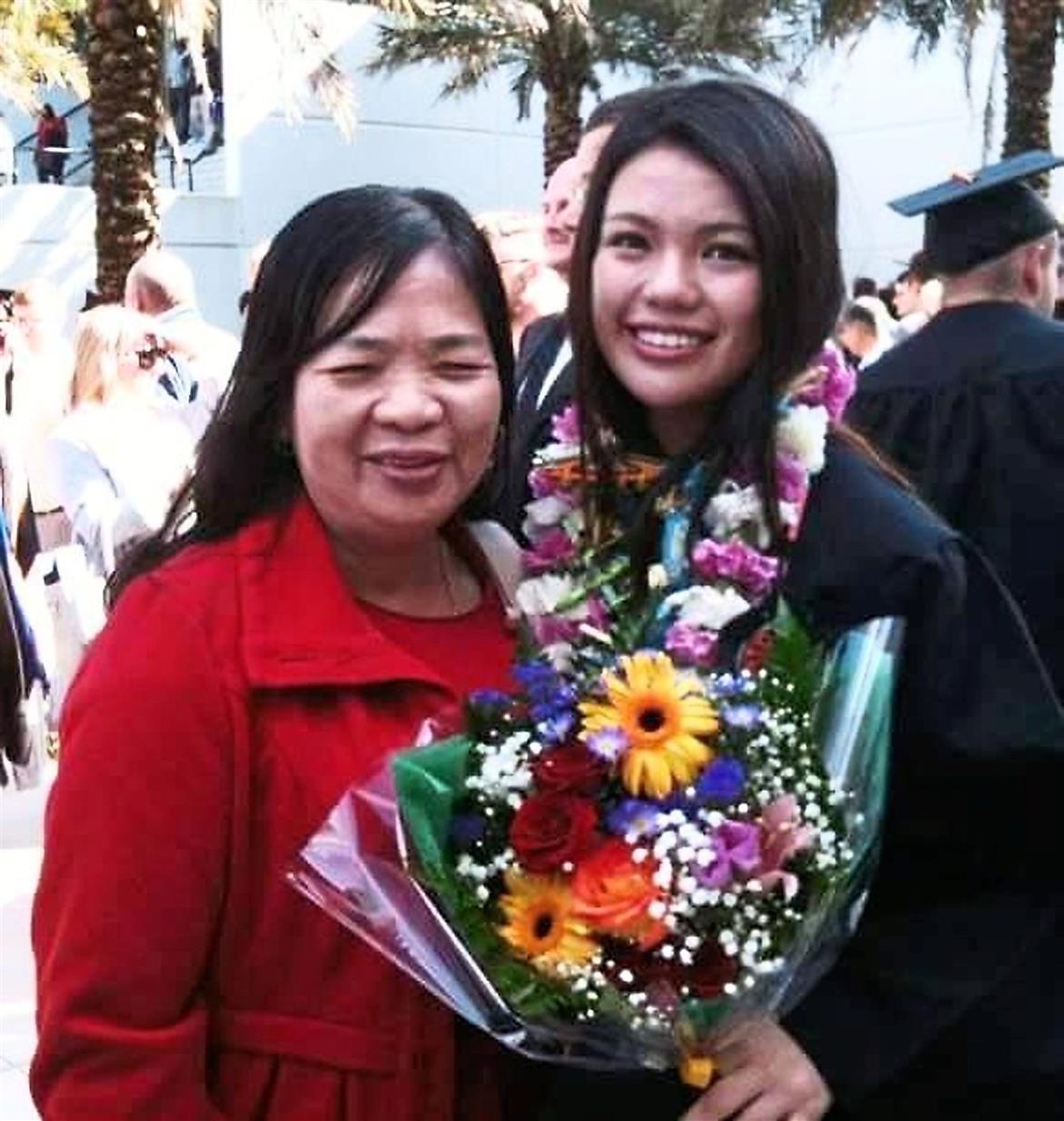The sky’s not the limit for female aerospace engineer

AS a young girl, Chan May Chong loved to fiddle with electronic gadgets and computers, often taking things apart and putting them back together to find out how they worked. Later, she loved studying math and robotics, where she learnt about programming, something which she says encouraged her to think more proactively about her surroundings.
“All that, plus my fascination with the mechanism of flight, led me to pursue aerospace engineering,” the 28-year-old told DW.
Chan now lives in the United States, where she is a systems engineer at Rockwell Collins Inc. in the state of Iowa. The company provides avionics and information technology systems and services to government agencies and aircraft manufacturers.
Having obtained an MSc in Aerospace Engineering from Embry-Riddle Aeronautical University, in Daytona, Florida, she is currently pursuing a Masters in Engineering Management at Penn State Great Valley School of Graduate Professional Studies.
An only child born to visually-impaired parents, Chan has certainly made her parents proud and credits them as her biggest role models in life.

Chan is currently a systems engineer at Rockwell Collins Inc. based in Iowa, US. Photo by CHAN MAY CHONG
Her late father was an audio technician who began losing his sight as the result of a severe fever. He was not even 40 when he became fully blind. Her mother, a former massage instructor for the blind, lost her sight after an eye infection.
“My parents were polar opposites,” says Chan. “Despite being the kindest person I have ever known, my mother was very strict with me. Her life stories showed me that one can achieve anything in life through strong will and discipline. She also taught me how to work hard and how to play hard, and that my mental and physical health were invaluable.”
She also learned plenty from her father, a jovial, optimistic and intelligent man who who spoke seven languages, including English, Mandarin, Japanese and German fluently.
“He helped mould my view of the world, to never let anyone tell me what I cannot do. Through him, I learned that only we can decide our own boundaries and that everything is possible if we put our minds to it.”
“He knew which day corresponded to which date in a specific calendar year without using any tool and enjoyed holding intellectual conversations with anyone about any topic.”
The family was also very active in sports. Chan’s parents were para-athletes who played lawn bowls, while she represented her state in table tennis, javelin, discus, shot put and judo.
Chan was also part of the school choir and took up violin.
Of course, she also helped her parents with the daily chores as well as doing her homework diligently.
Today, she continues to excel in her career and is an avid reader. Her favorite books include “The Universe In A Nutshell” and “Rocket Man”.

Chan with her mother during her graduation at Embry-Riddle Aeronautical University in Florida, US. Photo from CHAN MAY CHONG
As a graduate research assistant at Embry-Riddle Aeronautical University, she had the opportunity to work on the NASA Free-Flying Unmanned Robotics Spacecraft for Asteroid Resource Prospecting and Characterization Project at the Kennedy Space Center.
“The project I was involved with was under Kennedy Space Center’s Swamp Works, which provides government and commercial space ventures with the technologies required for working and living on the surfaces of the moon or other planets and bodies in our solar system.”
She has promised herself to find a way to make air transportation and space travel safer, greener and more economical, and is glad that her job is meaningful.
“I believe that this will connect the Earth as one big family and allow mankind to explore the unknown and learn more about ourselves.
“I love the parts involved with transporting passengers and cargo, including the ones capable of conducting search-and-rescue missions. Knowing that my team and I have given our best in ensuring the safety of flight so mankind can be connected around the world as a whole makes me proud of my job.”
“Space exploration has also led to the development of various technologies that feed back into the economy and improve our lives on earth. Without space programs, we wouldn’t have things like GPS, accurate weather prediction, solar cells or the ultraviolet filters in sunglasses and cameras,” she points out.
“Exploring space is an opportunity not only to discover new worlds and build advanced technologies, but to work together towards a larger goal, irrespective of nationality, race or gender.”
Author: Elle Wong (act)
–





